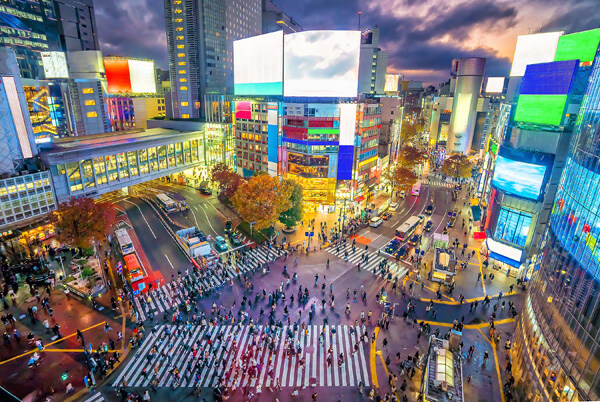What To Expect From Healthcare Abroad
How Healthcare Works Overseas
Although everyone hopes to avoid medical emergencies while abroad, it’s important to be prepared in case the unexpected becomes your reality – especially when traveling with small children.
As you travel abroad, you’ll likely find that the country you visit has a different healthcare system in place than the one you’re accustomed to in your home country. While each of the popular destinations on our list offers options for receiving medical care as an international visitor, the accessibility and standard of care vary from country to country.
It’s also important to know whether you’ll be responsible for some or all of your family’s medical expenses, as your domestic health plan may provide limited or no coverage outside of your home country.
Here’s a look at how medical care works in the most popular international destinations for families, and what to expect should you or your children need medical care in that country.
Europe
Who is insuring you is just as important as the insurance plan you choose. For the past 25 years, WorldTrips has provided travel insurance and compassionate service to help our customers travel fearlessly. Our knowledgeable customer representatives are available 24/7 to respond to your travel emergencies, no matter the situation, time zone, or spoken language.
France
Emergency Number: 15 (for emergency medical services) or 112 (to reach an operator)
Overview of the French Healthcare System
France, widely considered one of the top healthcare systems in Europe, ranks 1st on the World Health Organization’s "Rankings of the World’s Health Systems," with French medical teams branded as some of the best in the world. The healthcare system in France is partially funded by mandatory social security contributions, the government, and patients themselves.
For Visitors to France
A popular destination for family travelers, France offers a healthcare system comparable to that of the United States. As a visitor to France, you may be required to pay for services prior to receiving treatment, with the exception of emergency services.
There are three types of hospitals in France: public hospitals, private not-for-profit hospitals, and for-profit hospitals. You’ll find that most hospital employees in France speak English, and many hospitals provide clients with interpreters for free.
The U.S. Department of State recommends obtaining a “Feuille de Soins” after receiving medical treatment. This is a form that you will fill out and send to your health care provider in order to be reimbursed for covered medical expenses.
If you are a European Union/European Economic Area/Swiss citizen, you can use your European Health Insurance Card to access state healthcare in France or any other EEA country (including Switzerland) the same as those covered under the French healthcare system.

For Expatriates in France
The French healthcare system recently introduced coverage for specific foreigners in France, called the Protection Universelle Maladie (PUMA). By law, all residents in France must have some form of health insurance.
In order to be eligible for coverage under PUMA, you need to be employed or living in France on a stable and ongoing basis for more than three months, with the intention to spend more than 183 days a year in France. Additionally, you have to pay social contributions to cover your healthcare in France.
Greece
Emergency number: 112 (for general emergencies) or 166 (for an ambulance)
Overview of the Greek Healthcare System
The Greek healthcare system consists of the National Health System, compulsory social insurance, and a strong, voluntary, private healthcare system. Greece offers a total of 283 hospitals, including both public and private hospitals, with a significant part located in the Attica region.
Medical care in Greece is generally good – especially in the bigger cities of Athens and Thessaloniki. But the economic crisis that began in 2009 has led to worsened public hospitals, and wait times for medical care can be long.
It’s also important to note that, while public ambulances may be widely available in larger cities, access may be restricted on some islands and rural areas.
Additionally, medical care in these rural areas and islands is often substandard and lacking in resources, and there is often only one doctor serving the whole area.
For Visitors to Greece
Emergency care in Greece is free of charge, regardless of one’s nationality. Some private hospitals in Greece have affiliations with U.S. facilities and provide high-quality care. However, The U.S. Department of State highlights that the quality of services in some public medical facilities has degraded due to the economic crisis, and staff may speak little or no English.
Additionally, private hospitals usually require proof of adequate insurance or cash before admitting a patient.
For European Union/European Economic Area/Swiss citizens, you can use your European Health Insurance Card to access state healthcare in Greece or any other EEA country (including Switzerland) the same as those covered under the Greek healthcare system.
Iceland
Emergency Number: 112
Overview of the Icelandic Healthcare System
Iceland does not have a private healthcare sector, and healthcare services are controlled and funded by the state. All citizens and residents of Iceland contribute to the public healthcare system through taxes, which entitles them to healthcare coverage.
Iceland is divided into seven different healthcare districts. Each district operates its own healthcare centers. The country offers very high-quality medical care and has more doctors per capita than any other country.
While medical care is of high quality and is widely available in urban areas, there are limited medical services in rural areas.
For Visitors to Iceland
Visitors to Iceland can obtain medical assistance but must pay in full for these services (you can be reimbursed later by your private insurance provider). Ambulance services are not free of charge in Iceland.
For European Union/European Economic Area/Swiss citizens, you can use your European Health Insurance Card to access state healthcare in Iceland or any other EEA country (including Switzerland) the same as those covered under the Icelandic healthcare system.
Asia
Japan
Emergency Number: 119
Overview of the Japanese Healthcare System
Japan offers a world-renowned healthcare system that ranks 10th in the world by the World Health Organization. In Japan, there are relatively few general practitioners, as most doctors are specialists in a particular field of medicine.
Medical facilities in Japan are broadly categorized as either clinics or hospitals. Clinics are generally smaller and may consist of one doctor with one specialization, or multiple doctors with multiple specializations.
Hospitals, on the other hand, are usually larger institutions that have in-patient facilities and cover a wide range of specializations and emergencies.
For Visitors to Japan
In order to treat a foreigner who is not a member of the National Health Insurance plan, medical caregivers in Japan require payment in full at the time of treatment – or concrete proof of your ability to pay.
Note that the Japanese National Health Insurance plan is only available to those foreigners with long-term visas for Japan.
As a visitor, you should be able to find a hospital or clinic in most urban areas with some ability to communicate in English, according to the Japan National Tourism Organization.
When seeking emergency care in Japan, Lonely Planet recommends university hospitals as your first choice, as the level of care is usually highest and doctors are more likely to speak English. Larger cities like Tokyo are your best bet for finding clinics that specialize in caring for foreigners (with doctors who speak English), but they tend to be more expensive.
PRO TIP: Use the Japanese National Tourism Organization’s medical care guide, which allows you to search for medical institutions based in Japan. You can select what language you speak, what kind of medical department you need, and enter any key search terms related to your needs.
You can find a list of useful Japanese phrases to use in an emergency here.
Additionally, many large hotels in Japan have access to on-call medical services. Some may even have an in-house doctor or clinic. You can inquire at the front desk to find out if yours is one of them.

For Expatriates to Japan
Japan has 2 main kinds of public health insurance: Social/Employees’ Health insurance (provided to most full-time employees through work) and National Health Insurance (provided through municipal offices).
By law, all residents of Japan must be enrolled in a public health insurance program. For Japanese citizens and residents, health insurance generally covers 70% of the cost of diagnostic and treatment procedures, with the remaining 30% being paid for by the patient.
Thailand
Emergency Number: 1669 (medical emergency) or 191 (for fire/ambulance emergency services)
Overview of the Thai Healthcare System
Thailand features a universal healthcare system that provides 100% coverage to the citizens of Thailand. The Thai healthcare system is divided into three distinct areas: government health services, non-profit health organizations, and the private medical sector.
There are over 1,000 hospitals in Thailand’s public sector. Public hospitals have a relatively good standard of care, and the majority of Thai nationals use these facilities. Private hospitals in Thailand are especially high-quality, and often employ staff members that have been trained and educated in Western universities.
For Visitors to Thailand
The U.S. Department of State notes that healthcare in Thailand is generally adequate in urban areas such as Bangkok, Chiang Mai, and Pattaya. Facilities in these urban areas offer adequate routine, long-term, and emergency health care.
It is the policy of public hospitals in Thailand to take care of any patients who need medical care – not just Thai citizens. Basic medical care is available in rural areas, but English-speaking providers are rare.
Emergency ambulance services are free in Thailand. However, not all medical treatment is free, and the U.S. Department of State recommends purchasing supplementary travel medical insurance.
Uncover the ways in which family travel health insurance protects you abroad.
Singapore
Emergency number: 995
Overview of the Singaporean Healthcare System
The healthcare system in Singapore ranks 6th for world health systems by the World Health Organization. Singapore offers universal health care coverage to citizens and the government regulates both public and private health insurance. The healthcare system is maintained by the government through the Ministry of Health.
For Visitors to Singapore
Good medical care is widely available to visitors in Singapore. According to the U.S. Department of State, doctors and hospitals in Singapore expect immediate, up-front payment for health services by credit card or cash. Health facilities generally do not accept U.S. health insurance, and they may require a substantial deposit before admitting you for any major medical treatment.
Hospitalization costs in Singapore vary depending on the type of ward chosen. Wards in Singapore range between open wards with no air conditioning and private medical suites. However, charges between government and private hospitals for non-subsidized patients are similar.
Note that all emergency ambulance cases are directed to the nearest government hospital’s accident and emergency department.
Additionally, note that the Ministry of Health in Singapore may access patient medical records without the consent of the patient, as well as occasionally require physicians to disclose information relating to diagnosis or treatment without the patient’s consent.
Learn more about traveling in Singapore!
Central and South America
Mexico
Emergency Number: 911
Overview of the Mexican Healthcare System
Mexico’s healthcare system includes small private systems as well as universal health insurance programs. As a result, Mexico’s healthcare system is a mix of private, public, and employer-funded healthcare schemes.
However, Mexico’s healthcare system is relatively unequal, as it has one of the lowest per-capita expenditures of the Organization for Economic Co-operation and Development's member countries.
For Visitors to Mexico
The U.S. Department of State acknowledges that excellent health facilities are available in Mexico’s major cities, which include Mexico City, Monterrey, and Guadalajara. If you have to seek major medical treatment for yourself or your children, it’s worth it to travel to one of these locations.
Doctors in the private healthcare sector often speak English and are well qualified. However, training and availability of emergency responders may be below U.S. standards.
It’s also important to note that Mexican health facilities require up-front payment before procedures.
Additionally, the U.S. Department of State highlights that there have been complaints about unethical business practices, prices, and collection measures against some private hospitals in popular tourist destinations like Cancun, the Maya Riviera, and Cabo San Lucas. Make an effort to obtain complete information on billing, pricing, and proposed medical procedures before agreeing to any medical care in these locations.
If you’ll be staying at a resort, check whether the resort has an exclusive agreement with a medical provider, which may limit your options when seeking emergency medical attention for yourself or your family members.
Peru
Emergency Number: 105
Overview of the Peruvian Healthcare System
Peru features a decentralized healthcare system administered by 5 entities: the Ministry of Health (MINSA), EsSalud, the Armed Forces (FFAA), National Police (PNP), and the private sector. Hospitals, polyclinics, and healthcare centers operate under the administration of the Ministry of Health.
While many hospitals, clinics, and insurance providers function within the Peruvian healthcare system, there’s little coordination between them.
Healthcare in Peru can also be cost-prohibitive, as both public and private healthcare centers can be expensive.
Additionally, healthcare tends to be deficient and unevenly distributed between urban and rural areas due to the country’s geographic landscape. The U.S. Department of State highlights that medical care is generally good in Lima and adequate in other major cities.
For Visitors to Peru
Doctors in Peru expect a cash payment upfront, regardless of your medical aid or insurance, and medical facilities require you to pay before being released.
If you incur a serious injury or illness while abroad, you’ll find the best quality healthcare in the capital city of Lima, as private, urban healthcare facilities are often better staffed and equipped than public or rural ones. And in rural areas of Peru, it is unlikely that medical staff will be able to speak English.
If you’re traveling near the Cusco region of Peru – perhaps to see the historic capital of the Inca Empire – note that the region’s public facilities are generally inadequate for serious medical conditions.
Costa Rica
Emergency number: 911
Overview of the Costa Rican Healthcare System
Costa Rica boasts one of the best health care systems in Latin America. The country’s universal public health care system is Caja Costarricense de Seguro Social (CCSS), which is often simply referred to as Caja.
This government-run healthcare system is primarily responsible for providing low-cost healthcare services to the Costa Rican populace, including expats. It offers three levels of care:
-
Ebais: Short for Equipos Básicos de Atención Integral en Salud, these are small community clinics that provide basic medical assistance. There are over 1,000 of these small clinics operating around the country.
-
Clinics: You should be able to find ER, lab, and ambulance services here, as well as general doctors and pharmacies.
-
Hospitals: Located mainly in Costa Rica’s largest cities (like San José), Costa Rican hospitals offer 24-hour emergency rooms, surgery, and any other services you would expect to find at western hospitals.
You’ll also find private healthcare options in Costa Rica, which tend to be high quality and budget-friendly. Three main, private hospitals are located in or around San Jose: CIMA, Clínica Bíblica, and Hospital La Católica.
In the private system, patients can pay cash or use insurance.
For Visitors to Costa Rica
While medical care in San Jose is generally adequate, the U.S. Department of State cautions that services can be limited in areas outside of San Jose. Be especially careful in remote areas, where basic medical equipment may not be available, and ambulances may lack the emergency equipment they’re supplied with in the U.S.
Visitors to Costa Rica can only use Caja facilities in the event of an emergency. However, most doctors and healthcare professionals in both the national health system and the private system are fluent in English, and many trained abroad.
Note that you may be required to make an immediate cash payment to doctors and hospitals for health services rendered.

For Expatriates in Costa Rica
Health insurance from the Costa Rican government monopoly Instituto de Seguro Nacional (INS) is available to legal residents and is affiliated with doctors, hospitals, labs, and pharmacies in the private sector.
Oceania
New Zealand
Emergency Number: 111
Overview of the New Zealand Healthcare System
New Zealand provides a national healthcare system with a public and private sector. In the public healthcare system, all permanent residents have free access to a broad range of services, which are largely publicly financed through general taxes.
Medical services are provided through one of three sectors of the government-funded public health system in New Zealand:
-
District Health Boards: These are funded by the government and responsible for providing or funding health and disability services in their district.
-
Primary Health Care: This covers a broad range of out-of-hospital services.
-
Primary Health Organizations: These are the local structures for delivering and coordinating primary health care services.
For Visitors to New Zealand
According to the U.S. Department of State, New Zealand offers quality medical care, but access may be limited in rural areas.
Doctors and hospitals expect immediate cash payments for health services. Note that you will be charged for ambulance services in all regions except for the Wellington area.
As a tourist, you will be charged the full cost of services by public healthcare providers – unless treatment is related to an accident, in which case you are covered by a no-fault accident compensation scheme.
Australia
Emergency Number: 000
Overview of the Australian Healthcare System
Australia offers excellent health care options, according to the U.S. Department of State. The country’s national health care system affords its citizens universal access to a range of free and low-cost medical services, which are funded through general taxation. Additionally, Medicare provides citizens with free treatment in public hospitals.
There is a growing private hospital sector in Australia, as well. Citizens may receive subsidies for private health insurance, but they also face additional out-of-pocket expenses.
For Visitors to Australia
If your home country has a Reciprocal Health Care Agreement with Australia, you may be covered for the cost of medically-necessary care, shares the Australian Department of Human Services. Medically-necessary care means:
- care for an illness or injury that cannot wait until you get home
- care that Medicare covers
Australia has reciprocal health agreements with these 11 countries:
- Belgium
- Finland
- Italy
- Malta
- Netherlands
- New Zealand
- Norway
- Republic of Ireland
- Slovenia
- Sweden
- United Kingdom
There are additional stipulations for each country about what is covered and how long coverage applies. See more specific information here.
While the U.S. Department of State recognizes that excellent medical care is available in Australia, doctors and hospitals often expect immediate cash payment for health services. If you’re not a citizen of one of the above countries, you will be responsible for the full costs of any medical care you receive.
Africa
Rwanda
Emergency Number: 912
Overview of the Rwandan Healthcare System
Rwanda provides near-universal healthcare to citizens that is financed by tax revenue, foreign aid, and voluntary premiums scaled by income. The public health sector in Rwanda is divided into three levels:
-
Central level: This level is responsible for the overall strategic and technical framework in which health services are provided
-
Intermediate level: This level is comprised of 11 provincial health offices
-
Peripheral level: This level consists of district health offices that contain an administrative office, a district hospital, and primary health centers
Private facilities in Rwanda have hospitalization capacities, and some have specialized medical services, such as gastrology, ophthalmology, and physiotherapy. These facilities are often staffed with trained paramedical professionals.
For Visitors to Rwanda
Medical care is limited in Rwanda. For example, ambulances are available in Kigali, but most ambulance services function solely as transportation – they offer little to no medical treatment.
Additionally, ambulance services are not free in Rwanda, and payment is expected either upfront or upon delivery. Ambulance operators mostly speak French, and sometimes English.
The best standard of emergency medical care in Rwanda is located at the King Faisal Hospital in Kigali. Note that Rwandan healthcare providers require payment before medical services are performed.
Learn more about safe travel in Rwanda!
Morocco
Emergency Number: 15
Overview of the Moroccan Healthcare System
The healthcare system in Morocco consists of a public sector, a private not-for-profit sector, and a private for-profit sector.
Medical coverage in Morocco is guaranteed by three strategies: fixed, mobile, and roaming. With the fixed strategy, an individual goes to a basic health care provider. With the mobile and roaming strategies, medical care is brought to the individual when he or she is located far from a health center.
For Visitors to Morocco
Adequate medical care is available in Morocco’s largest cities, but not all facilities meet Western standards of care. Emergency and specialized medical care outside of major cities like Rabat and Casablanca is far below U.S. standards, and may not be available at all.
Additionally, most medical staff in Morocco have limited or no English-speaking abilities.
Note that public healthcare in Morocco is inefficient in providing adequate medical care. That’s why most foreigners and expats tend to visit private hospitals.
Discover more information about traveling safely in Morocco!
The Next Steps
While some countries around the world provide insurance for their own citizens and residents, many countries require visitors to pay up-front for medical services. On top of that, high-quality medical care isn’t always guaranteed – especially in remote and rural areas.
The above examples of healthcare abroad should provide you some inclination as to the level of care available to you and your family members as you travel abroad.
The next step is to learn what medical services your health insurance will cover abroad and to consider purchasing travel medical insurance, as frequently recommended by the U.S. Department of State for international travelers.
For more information, check out these tips on How to Choose a Family Travel Health Insurance Plan.

Explore More Family Travel Content from WorldTrips
KHE2FFFYH6SP-971744701-295
WorldTrips is a member of the Tokio Marine HCC group of companies. WorldTrips international travel medical insurance products are underwritten through binding authorities with TMHCC (CI) Insurance SPC Ltd and Houston Casualty Company (HC).
